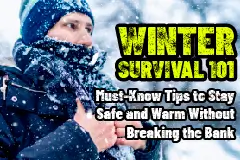A Year of Extreme Weather: 2024's Atlantic Hurricane Season
Okay, so, 2024's Atlantic hurricane season? Let me tell you, it was intense. I remember watching the news, scrolling through updates, and just being in awe (and a little scared, if I'm being honest) of what was happening. We're talking 18 named storms – that's a lot! – including 11 hurricanes and 5 major ones.

NOAA's GOES-16 satellite captured Hurricane Helene as it approached Florida at 3:51 p.m. EDT on September 26, 2024. Image credit: NOAA Satellites
I remember seeing this incredible image from NOAA's GOES-16 satellite of Hurricane Helene as it was barreling towards Florida (it was taken at 3:51 p.m. EDT on September 26th, 2024, if you want to look it up). The storm caused catastrophic flooding across the southern Appalachians, widespread wind damage from the Gulf Coast to the North Carolina mountains and storm surge flooding along portions of western Florida. It was terrifying, this swirling mass of clouds. It really brought home the power of these storms.
Key Highlights of the 2024 Atlantic Hurricane Season:
Record-Breaking Activity: A record number of hurricanes formed after the peak of the season in September.
Devastating Landfalls: Multiple hurricanes made landfall in the U.S., causing widespread damage and loss of life.
Accurate Forecasting: NOAA's advanced forecasting models and Hurricane Hunters played a crucial role in providing timely and accurate information to communities.
Innovative Technology: NOAA utilized cutting-edge technology, such as drones and ocean gliders, to improve hurricane tracking and prediction.
Lessons Learned and Future Outlook
The 2024 hurricane season serves as a reminder of the destructive power of nature and the importance of preparedness. As climate change continues to influence weather patterns, it's crucial to stay informed and take necessary precautions. By understanding the factors contributing to these extreme weather events and investing in advanced forecasting technology, we can better prepare for future hurricane seasons and mitigate their impact on coastal communities.
How Can You Protect Yourself and Your Family
This is the really important part, right? If you're in an area that could be affected by hurricanes, you need to be prepared. Trust me, I've seen firsthand how quickly things can change. So, what can we do to get ready and stay safe?
Practical Life Tips for Hurricane Preparedness:
Let's focus on some hands-on things we can all do to make sure we're as ready as possible.
Know Your Evacuation Routes and Zones: Do you know the evacuation routes in your area? Where would you go if you had to leave your home? It's really important to familiarize yourself with these routes before a storm is approaching. You don't want to be stuck in traffic or confused about where to go when time is of the essence. Have you looked up your local evacuation routes? It's a good idea to have a couple of different options in mind, just in case.
Create a Communication Plan: How will you stay in touch with your family if you're separated during a storm? Cell phone service can be unreliable during emergencies, so it's a good idea to have a backup plan. Designate an out-of-town contact person who everyone can check in with. This way, even if local communication is down, you can still relay information. Have you thought about who your out-of-town contact would be?
Build a Go-Bag (or Emergency Kit): This is essential! A go-bag should contain everything you need to survive for several days without access to stores or utilities. Think about things like:
- Water (at least one gallon per person per day)
- Non-perishable food (canned goods, energy bars, etc.)
- A first-aid kit A flashlight and extra batteries
- A battery-powered or hand-crank radio
- A whistle to signal for help Copies of important documents (in a waterproof bag)
- Medications
- Personal hygiene items
- A multi-tool or knife
- Cash (ATMs might not be working)
It might seem like a lot, but having these essentials can make a huge difference. Have you started building your go-bag? I can share a more detailed checklist if you’d like.
Secure Your Home: If you're not evacuating, take steps to protect your home from wind damage. This includes:
- Boarding up windows or covering them with plywood or hurricane shutters.
- Bringing loose outdoor items (patio furniture, grills, etc.) inside.
- Trimming trees and shrubs that could fall on your house.
- Clearing gutters and downspouts.
It's all about minimizing the risk of damage. Have you thought about how you would secure your home?
Stay Informed and Heed Warnings: This is probably the most important thing. Keep an eye on weather forecasts from reliable sources like the National Hurricane Center or your local news. Pay attention to evacuation orders and don't hesitate to evacuate if instructed to do so. It's always better to be safe than sorry. How do you usually stay updated on weather alerts?
The Bottom Line
The 2024 hurricane season was a stark reminder of the power of nature. It was a year that highlighted the importance of preparedness, accurate forecasting, and having the right resources in place.
Safety is paramount. Stay informed, make a plan, and be prepared.


